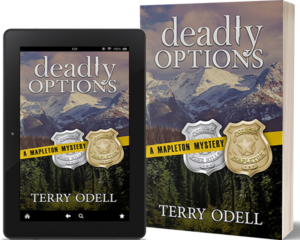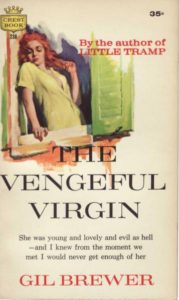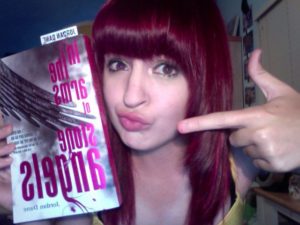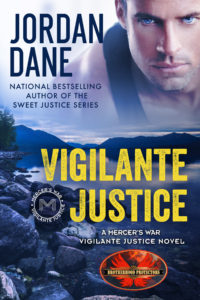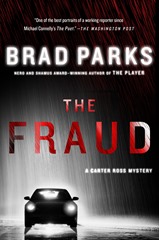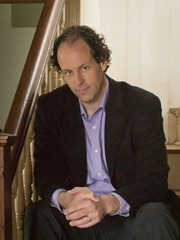Voice Revisited
Terry Odell
 Travel gods willing, I’ll be in the air much of the day, on my way to Hubster’s Bucket List trip of a Mississippi River cruise on a paddlewheeler with a few extra days in New Orleans to enjoy the sights–and the food. I’ll respond to comments when I can.
Travel gods willing, I’ll be in the air much of the day, on my way to Hubster’s Bucket List trip of a Mississippi River cruise on a paddlewheeler with a few extra days in New Orleans to enjoy the sights–and the food. I’ll respond to comments when I can.
In my last post, Dr. Doug Lyle spoke about voice being the most important thing that sells your next book, so I’m revisiting a post I did on the subject of voice back in 2021, with some additions and other modifications. (There’s a free short story read in this version.)
I’m looking at two aspects of voice: Character and Author.
Part A. Character Voices, or “Give Them Their Own.”
I recall reading my first book by a best-selling author. A male character discovered a young girl, about 5 years old, who had been left to die in the woods. He brings her to his cabin and finds she cannot or will not speak. I was impressed with the way the character spoke to the child—it seemed exactly how someone should deal with that situation. However, as more characters entered the story, I discovered that he spoke that way to all of them. Not only that, almost every character in the book spoke with that same “Talking to a Child” voice. Obviously, it doesn’t bother the millions who buy her books, but it bugged the heck out of me. And it’s consistent with all her books in that series. It wasn’t just a one-time deal.
It’s important in a book that characters not only sound like themselves, but don’t sound like each other. That means knowing their history, their age, education, as well as occupation, nationality—the list goes on. Ideally, a reader should be able to know who’s speaking from the dialogue on the page without beats, tags, or narrative.
Cowboys don’t talk like artists, who don’t talk like sailors, who don’t talk like politicians. And men don’t talk like women. They’re hard-wired differently. I’m a woman, and in my first drafts the dialogue will lean in that direction. After I’ve written my male characters’ dialogue, I go back and cut it down by at least 25%.
A few tips to make your characters sound like themselves.
Don’t rely on the “clever.” Dialect is a pitfall—more like the Grand Canyon. If you’re relying on phonetic spelling to show dialect, you’ll stop your readers cold. Nobody wants to stop to sound out words. You can show dialects or accents with one or two word choices, or better yet, have another character notice. “She heard the Texas in his voice” will let the reader know.
Give your characters a few simple “go to” words or phrases. For me, this is often deciding what words my character will use when he or she swears (since I write a lot of cops and covert ops teams, swearing is a given). Then, make sure he or she is the only person who uses that word or phrase.
Keep the narrative “in character” as well. This especially includes internal monologue, and even extends to narrative. Keep your metaphors and similes in character. If your character’s a mechanic, he’s not likely to think of things in terms of ballet metaphors.
What your character says and does reveals a lot to your readers. Workshops I’ve attended have given out the standard character worksheets (which have me screaming and running for the hills), but it’s the “other” questions that reveal your character. What’s in her purse? What’s in his garbage? What does he/she order at Starbucks? Would he/she even be caught dead in a Starbucks? James Scott Bell’s workshops include excellent examples.
How do you keep your characters distinct? How do you get to know them? Do you need to know a lot before you start, or are you (like I am) someone who learns about them as you go?
Which brings me to Part B: Authorial Voice, or “Stay the Hell off the Page.”
After a presentation I gave for a local book club, one member said she’d read one of my books. Her comment was, “You write the same way you talk.” And, after I sent a chapter to my critique partners, one said, “This sounds very Terry.” That, I think, sums up “voice.”
Any author starting out tries to write what she thinks a writer should sound like. She might work hard to make her characters sound unique, and true to their backgrounds, but all the other stuff—the narrative parts where the character isn’t speaking—sounds stilted. It sounds “writerly.”
But what the characters say isn’t quite the same as “Authorial Voice.” Think of all the renditions of the national anthem performed at sporting events. The words are the same, the notes are the same, but each singer performs it in their unique voice.
The author’s voice is all the other words, the way the sentences are put together, how the paragraphs break. Can anyone confuse Harlan Coben with Lee Child? Janet Evanovich with Michael Connelly? Even Nora Roberts has a distinctive voice that is recognizable whether she’s writing a romance as Roberts, or one of her “In Death” futuristics as JD Robb. There are those who say the authorial voice is the writer’s style.
When I was a fledgling writer, I experimented. One such experiment was a short story in a voice that seems very different from the way I write now. Perhaps it was because I’d been reading a book my cousin recommended, which was not what I usually read. At any rate, it’s a very short story, and was almost my first paid writing gig. Alas, the magazine folded before the offered contract was issued. When I wrote it, it was more of an exercise in POV; first his, then hers. It’s called “Words” and you can download it for free here. For those of you locked into your Kindles, you can find it here. (Amazon is cranky about freebies.) I’d be curious to know if anyone sees my current voice with the one in this short short.
Your authorial voice will develop over time and (one hopes) will become recognizable. It’s important to learn the ‘rules’ of writing before trying to be distinctive. In the art world, we recognize artists by their style. The Star Spangled Banner opens countless events, yet even though the notes are the same, they presentations vary. Immensely.
Before artists of any format—music, poetry, prose, acting, create their own recognizable style, they learn the basics. Before your voice will develop, you have to write. And write. And write some more.
Try looking at your manuscript, or the book you’re reading. Find a passage that’s filled with narrative. How do you, or the author in question deal with it? Is it in the same vein as the dialogue, or do you get jolted out of the story because all of a sudden there’s an outsider taking over? If it’s a funny book, the narrative needs to reflect that sense of humor. If it’s serious, the author shouldn’t be cracking wise in narrative. If your character speaks in short, choppy sentences, then he’s likely to think that way, too. Again, the narrative should continue in that same style.
You want your voice to be recognized, but not intrude on the story. If you want the reader caught up in the story and the characters, you, the author have no business being on the page. Every word on the page should seem to come from the characters, whether it’s dialogue or narrative. You’re the conduit for the story and the characters. You’re there so they shine, not the reverse.
It takes practice—and courage, because you have to put “you” on the page, and not the “writer.” But when you finish, you should have your own special work. You won’t be a cookie-cutter clone. Rule of thumb—if it sounds “writerly”, cut it. When the words flow from the fingertips, that’s probably your own voice coming through. Let it sing.
New! Find me at Substack with Writings and Wanderings
When breaking family ties is the only option.
Madison Westfield has information that could short-circuit her politician father’s campaign for governor. But he’s family. Although he was a father more in word than deed, she changes her identity and leaves the country rather than blow the whistle.
Blackthorne, Inc. taps Security and Investigations staffer, Logan Bolt, to track down Madison Westfield. When he finds her in the Faroe Islands, her story doesn’t match the one her father told Blackthorne. The investigation assignment quickly switches to personal protection for Madison.
Soon, they’re involved with a drug ring and a kidnapping attempt. Will working together put them in more danger? Can a budding relationship survive the dangers they encounter?
Available now.
 Terry Odell is an award-winning author of Mystery and Romantic Suspense, although she prefers to think of them all as “Mysteries with Relationships.”
Terry Odell is an award-winning author of Mystery and Romantic Suspense, although she prefers to think of them all as “Mysteries with Relationships.”


 Jennifer Pound is a recently retired police officer where she thrived in various traditional and non-traditional policing roles. She spent years as the face of the RCMP (Royal Canadian Mounted Police) as a communications director. Her recent role was with IHIT, Vancouver’s Integrated Homicide Investigation Team — the largest homicide unit in Canada — where she saw the worst of people and helped to bring justice for the victims that died at the hands of evil.
Jennifer Pound is a recently retired police officer where she thrived in various traditional and non-traditional policing roles. She spent years as the face of the RCMP (Royal Canadian Mounted Police) as a communications director. Her recent role was with IHIT, Vancouver’s Integrated Homicide Investigation Team — the largest homicide unit in Canada — where she saw the worst of people and helped to bring justice for the victims that died at the hands of evil. Many police officers think the absolute worst; it’s a gift we’ve so graciously received, or perhaps more like a curse. Few of us can drive by a bag of garbage or a rolled-up carpet on the highway and not think about the nightmare that must live within. I’ve often wondered if it was just me, but I know with certainty, it’s not.
Many police officers think the absolute worst; it’s a gift we’ve so graciously received, or perhaps more like a curse. Few of us can drive by a bag of garbage or a rolled-up carpet on the highway and not think about the nightmare that must live within. I’ve often wondered if it was just me, but I know with certainty, it’s not.
 To test the theory, she made a bit of a detour. She turned down a cul-de-sac with few homes that only residents that lived there would need to access. She walked for a bit and then did an about-face, like she forgot something, crossed the road, and turned back. Hub cab carrying, douchebag guy continued to follow them. At this point, she was terrified. She grabbed her sister’s hand, and she ran. They ran until they reached the school and she lost sight of him. That’s when she called me.
To test the theory, she made a bit of a detour. She turned down a cul-de-sac with few homes that only residents that lived there would need to access. She walked for a bit and then did an about-face, like she forgot something, crossed the road, and turned back. Hub cab carrying, douchebag guy continued to follow them. At this point, she was terrified. She grabbed her sister’s hand, and she ran. They ran until they reached the school and she lost sight of him. That’s when she called me.


